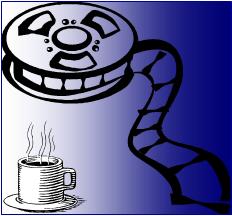

|
 |
The Graduate
|
Please go to the new Coffee Coaster site implemented more gracefully in Wordpress. This page: http://brianrwright.com/CoffeeCoasterBlog/?p=4342 |
Anne Bancroft ... Mrs. Robinson
Dustin Hoffman ... Ben Braddock
Katharine Ross ... Elaine Robinson
William Daniels … Mr. Braddock
Murray Hamilton ... Mr. Robinson
Elizabeth Wilson ... Mrs. Braddock
Buck Henry ... Room Clerk
Mr. McGuire: I want to say one word to you. Just one word.
Benjamin: Yes, sir.
Mr. McGuire: Are you listening?
Benjamin: Yes, I am.
Mr. McGuire: Plastics.
In the winter of 1967 I'm a middle-class white kid enrolled at Kansas State College in Pittsburg, Kansas, a small teachers' college 150 miles south of the Kansas City area. The Vietnam War was beginning to get serious and peacenik/hippies were just popping up at the institutions of higher learning, as well as on the streets of America. Lyndon Johnson was President. The CIA, after wasting John, had not yet killed Bobby and Martin. In many ways, 1967/68 was the calm before the storm.
In late '67, the media machinery was making gaga over this movie, The Graduate, which was supposedly a clever, existential treatment of the angst of our generation facing adulthood. And it was. With a large helping of sexual liberation thrown in. Don't forget, only four years previous, Betty Friedan had written The Feminine Mystique and it would be another three years before Dr. David Reubens' Everything You Always Wanted to Know about Sex, But Were Afraid to Ask. Thus, let's face it, the great majority of young men (and women, too) were as clueless about romance and sex as ever... possibly worse because of all the James Bond movies. But we were extraordinarily interested, open-minded, and hopeful.
The graduate in The Graduate is Benjamin Braddock (Dustin Hoffman), who has just finished his bachelor's degree with distinction at a Northeast college. He returns to his wealthy parents' house in Pasadena, California, for a celebration attended by, essentially, exclusively, his parents' friends. That's a noteworthy sequence actually, as his father (William Daniels) says, "Benjamin we brought all our friends to your party." In other words, the parents and aren't about the next generation at all, they're about holding on to their own youth, living vicariously through their offspring... maintaining the "perfect system."
I think that leads to some interesting questions: a) Were our parents (members of the so-called Greatest Generation) commonly as depicted by Benjamin's parents and friends in The Graduate, and b) Were the Boomers any different when they became parents? [And I guess now we're coming to the Gen-X qua parents of children blooming into adults.] Short answer: mostly parents are genuinely caring for their maturing children and try to put themselves in their offsprings' shoes. However, in some well-to-do American subcultures, superficiality reigns.
No doubt the author and director are suggesting that Southern California materialism represents a barrier to authentic human growth, not an encouragement. [start small spoiler alert] Further, it so happens Mrs. Robinson (Anne Bancroft), seeks to satisfy her psychological needs—recover a feeling of excitement from her youth before this facade of a life buries her—by using Benjamin physically. At 21, he's insecure in the sex department, so they work out an arrangement... which is full of a lot of natural humor and pathos, the stuff that broken dreams are made of. [end small spoiler alert]
Which leads to this, which leads to that. Mainly which leads to Mrs. Robinson's daughter, Elaine (the ravishingly beautiful Katherine Ross—who is actually 27 when the movie is made). Elaine is also coming home from school. Parent World, wholly innocent of what's going on between Benjamin and Mrs. Robinson, seems hell bent to get Benjamin and Elaine together. Making a long story short, between Benjamin and Elaine, there's turmoil, then passion, then more turmoil when certain things are discovered, then a kind of resolution... which ends as the movie begins, with Simon and Garfunkel's "Hello, Darkness, My Old Friend" (the Sounds of Silence).
I must say, that final scene stays with you for quite a while. I don't want to give it away if you're the one person from the Baby Boomers who didn't see the movie (or probably millions of subsequent generations who don't have the slightest idea what I'm talking about). For one thing, Southern California materialists are an easy target, and in retrospect the attribution of so much malevolence to so many of them seems contrived. For another, what Benjamin and Elaine do seems a bit excessive.
But the confrontation and resolution are dramatic, and, yes, still filled with a fair amount of natural humor. Poetic license. So as Benjamin and Elaine, having made their bold choice to create their own happiness together, are riding off into the sunset with the Sounds of Silence playing, you sense a twinge of youthful uncertainty remaining. Haven risen above materialism for love, will they then find that "a special someone who makes all your dreams come true" is a cruel false need of its own?
Who knows?
One has to appreciate the writers' presentation of uncertainty here. They don't take the easy way out. Mike Nichols has always done socially satirical or philosophically puzzling films that generate a fair amount of head scratching when the credits roll. The entertainment value, however, is never compromised.
Reading a few of the letters on the IMDb site, I note one is bothered that the War never seems to come up. It's as if in Southern California—at the time, you could get a 2-S student deferment to avoid being drafted into the armed services, but once you graduated you were subject to the military draft—kids didn't have to concern themselves about the war. That's, at best, misleading. Plus where were the hippies? Even on the campus of UC Berkeley, near San Francisco, where Benjamin and Elaine do some of their relationship dance, you'd never know there was a war going on... believe me, at the time, in reality thousands of students (and 'outside agitators') were making an issue of it.
The writers leave it alone. Probably by intention. Nothing like the brutality of mass killing by the state to take the edge off a fine satire. Frankly, I'm glad they did leave it alone. I prefer the sanitized world of the creators, where the only concerns are middle-aged depression and post-pubescent struggles to become full, independent persons. Probably a lot of my peers looked on The Graduate as escape medicine from a world that seemed to be falling head-over-heels apart.
What it also tells me is that 40 years ago it was much easier for the entertainment industry to ignore the harsh truth. [Consider that the TV series M.A.S.H. ran for 11 years (1972-1983) using the Korean War as a surrogate for the Vietnam War, managing to dull Americans' senses with laughtracks while the imperial American state marched on and on.] I'm not upset that entertainers want to stay as light as possible, I'm only upset that people too often use the Sanitized Version as an excuse to do nothing decisive to end monstrous in-your-face social evils like war.
And as I stated, The Graduate came out in the lull before the storm.
###
2010 September 15
Copyright © Brian Wright | The Coffee Coaster™
The Graduate | Dustin Hoffman | Coming of Age Movies | Antiwar
 |
||||
| |